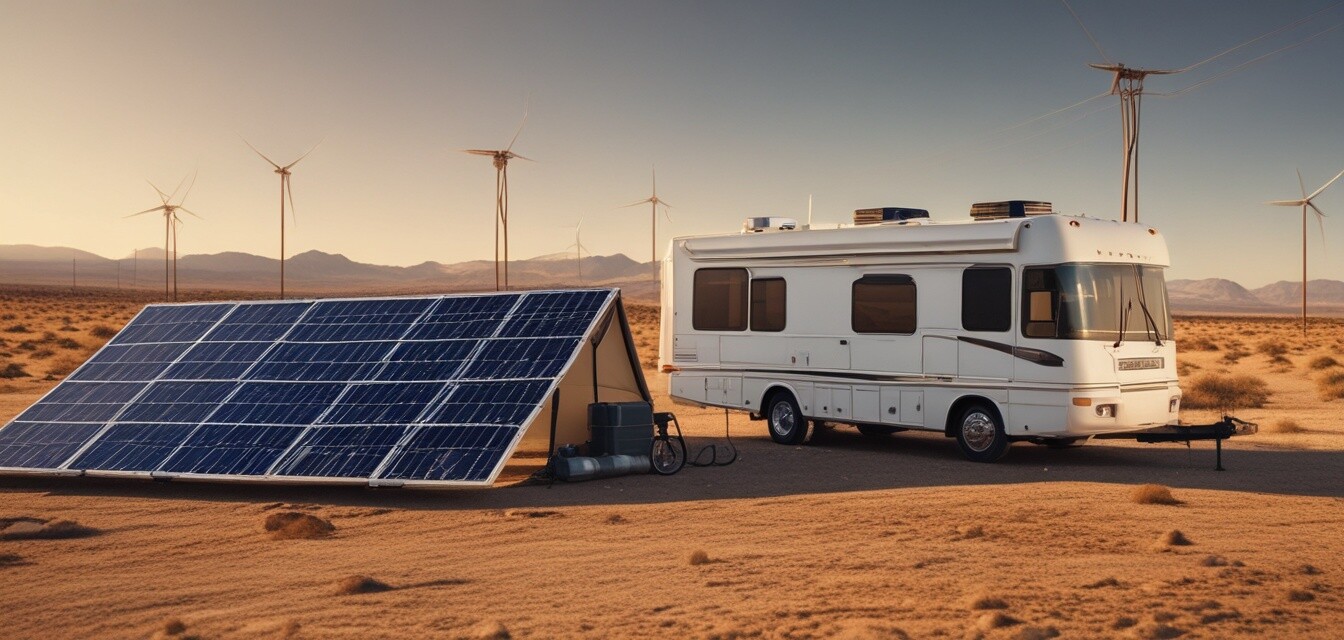
Solar Power vs. Traditional RV Power Sources
Key Takeaways
- Solar power offers a renewable energy solution for RVs.
- Traditional power sources may provide immediate availability but come with higher costs and environmental concerns.
- Understanding efficiency and installation is crucial in making an informed choice.
- Both solar and traditional systems have their pros and cons, which can impact your RV experience.
When it comes to powering your RV, you have two primary options: solar power and traditional power sources. In this article, we will analyze the pros and cons of each, considering factors like efficiency, cost, and environmental impact. Choosing the right power source can significantly enhance your RV adventures, and making an informed decision is crucial for your comfort and sustainability.
Understanding solar power for RVs
Solar power has gained immense popularity among RV enthusiasts. Utilizing solar panels, this method harnesses sunlight to generate electricity. Let's delve deeper into its benefits and drawbacks:
Pros
- Renewable source of energy.
- Reduces reliance on fossil fuels.
- Cost-effective in the long run.
- Quiet operation with minimal maintenance required.
- Enables off-grid camping experiences.
Cons
- High initial installation costs.
- Dependent on sunlight availability.
- Space limitations on RV rooftops.
- Performance decreases during cloudy weather.
Examining traditional power sources
Traditional power sources for RVs typically include generators, fuel-powered systems, and shore power connections. Here's how they stack up:
Pros
- Immediate availability of power.
- Can provide high-energy output when needed.
- Easier to find service or repair in emergencies.
- No restrictions based on sunlight or weather conditions.
Cons
- Higher ongoing fuel costs.
- Environmental impact from emissions.
- Maintenance and operational noise can disturb camping.
- Limited mobility when tied to shore power sources.
Comparing efficiency
| Power Source | Efficiency | Cost Effectiveness | Environmental Impact |
|---|---|---|---|
| Solar Power | Varies based on sunlight availability | Lower over time | Low; renewable and clean |
| Traditional Power Sources | Consistent output | Higher over time | Higher; produces emissions |
Assessing cost considerations
When deciding between solar and traditional RV power sources, cost is a major factor. Here's a breakdown of initial investments and long-term expenses:
| Power Source | Initial Investment | Maintenance Costs | Fuel Costs (if applicable) |
|---|---|---|---|
| Solar Power | High (for panels and installation) | Minimal | N/A |
| Traditional Power Sources | Low to Medium | Moderate | Ongoing fuel costs (can be high) |
Environmental impact
The importance of environmental sustainability is high on many RV users’ agendas. Among the various power options, solar stands out:
- Solar power is a clean energy source: It produces no emissions during operation.
- Traditional sources contribute to air pollution and climate change due to fossil fuel combustion.
Conclusion: Making the right choice for your RV
When comparing solar power to traditional RV power sources, each has distinct benefits and drawbacks. Solar power is ideal for those looking for renewable, sustainable energy, while traditional sources may appeal to those prioritizing immediate power availability. Consider your camping habits, budget, and environmental values when making your decision.
For more information on specific RV power products and guides, check out our battery systems for RV solar and Buying Guides.